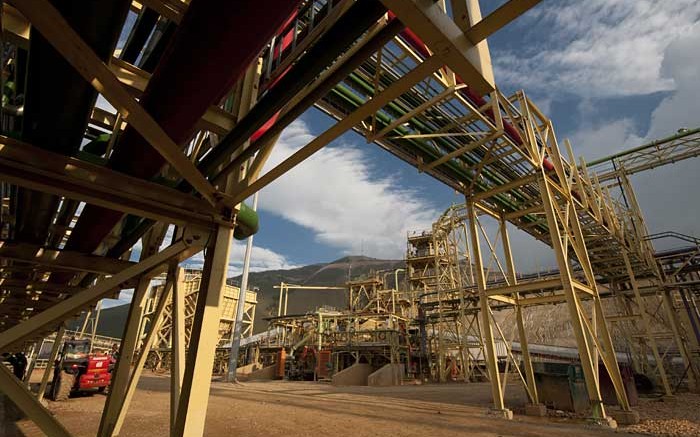After waging a weeks-long campaign against the board of Banro (TSX: BAA; NYSE-MKT: BAA), Liberty Street Capital backed off its bid for control of the gold miner just two days before Banro’s annual general meeting.
Liberty Street had charged that Banro was being poorly managed, has taken on excessive debt, failed to meet its objectives within reasonable timelines. However, Liberty evidently failed to rally enough shareholder support for its own slate of board candidates.
The Toronto-based merchant bank made the decision to withdraw its board nominees after discussions with other shareholders, the bank’s chairman Loudon Owen said in a release.
“In light of representations made by management to shareholders about the company’s plan, prospects and timetable to rectify its negative working capital position, the feedback from shareholders has been to give management another chance to deliver better results,” reads the release.
Liberty Street holds only 1,000, non-voting shares of Banro, which were acquired after the record date for the annual meeting, held on June 27. The bank was working with New York-based Banro shareholder Noam Franklin, who owns 10,000 shares.
Banro owns the Twangiza and Namoya gold mines in the eastern Democratic Republic of the Congo (DRC). Twangiza, located in South Kivu province, began commercial production in September 2012 and is expected to produce 100,000 oz. gold this year. Namoya, located in Maniema province, 200 km southwest of Twangiza, began initial production at the end of 2013 after a series of construction delays. Namoya is expected to produce 50,000 to 60,000 oz. gold in the second half of 2014, once it enters commercial production in the third quarter.
In a release, Banro chairman Richard Brissenden thanked institutional and retail shareholders for their support.
“Banro is at a critical point in its life cycle — with the company poised to enhance long-term value for shareholders — and intends to ensure that the go-forward plan continues to respond to the feedback we have received from our shareholders.”
The company said that the battle had been “costly and a distraction to the board,” but added that it is “confident that the clarity achieved through shareholder engagement will better enable the company to proceed with the business at hand, and continue to enhance value for all shareholders.”
Liberty Street had been looking to make changes to the board, including adding business-focused directors from the DRC, and addressing the company’s debt and working capital deficit.
Banro closed a US$175-million debt financing in March 2012 to develop Namoya, and has since completed another $140 million in financings in convertible preferred shares and credit facilities.
Liberty Street noted that the company has $217.5 million in debt due in 2017, or earlier.
“In our opinion, Banro is at the point of exhausting its capacity to raise capital through debt facilities, and a revised financing strategy is needed.”
Liberty Street said its plan for Banro included a full strategic review of its operations and management, and developing a financing plan.
Its alternate slate of directors included Owen, businessmen from the DRC, and Atacama Pacific Gold (TSXV: ATM) chief financial officer Thomas Pladsen.
Ahead of the vote, Banro had the support of Institutional Shareholder Services (ISS) and Glass Lewis, independent firms that provide governance and proxy voting analysis and advice for institutional investors.
Banro quoted ISS as saying that the dissident shareholders had not made a compelling case that changes to the board were necessary.
“There are also early signs of operational progress: year-over-year gold production increased by 16% at Twangiza, the Namoya plant was brought online and the company successfully raised capital in February under difficult conditions,” Banro quoted ISS as saying. “Though the company still faces a number of challenges ahead, it is unclear what else a new board or management team would do that the current board has not done. The dissidents, therefore, have not made a compelling case that a change to the composition of the board is necessary at this time.”
For Banro’s part, it says it has responded to shareholder concerns with changes to its board and a reorganization of its DRC management team over the last year.
The changes include appointing Brissenden — on the board since December 2013 — as chairman in June to provide independent leadership, and adding independent directors.
Banro has been working with its larger shareholders on strengthening its balance sheet, but was interrupted by the “dissident attack.”
The company is only months away from transforming into a multi-mine producer generating robust cash flow. Namoya will soon start commercial production, and Twangiza is poised to benefit from an expansion program carried out in 2013 and early 2014.
“Over the past eighteen months, Banro has navigated the 35% collapse in the price of gold, adjusting its capital and operating budgets to meet conditions during this difficult period,” the company said in a letter to shareholders. “During that same time, Banro upgraded the Twangiza processing plant and constructed the Namoya mine, which is being commissioned for commercial production expected during third-quarter 2014.
“Banro is reaching a milestone in its history where it will be able to reap the benefits afforded to a multi-mine company.”
In withdrawing its proposed nominees, Liberty Street said it would hold management accountable for meeting its promises, and that it may increase its holdings in Banro.
Banro shares have been little affected by the aborted proxy challenge. Ahead of the AGM, they traded at 49¢ in a 52-week range of 43¢ to $1.22. The company has 252.1 million shares outstanding.


Be the first to comment on "Banro challenger backs off from proxy battle"